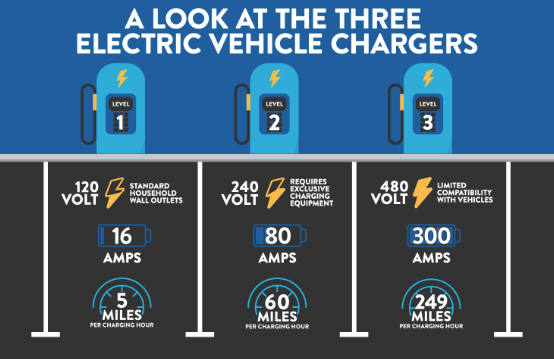The Permitting Process for Installing Solar Panels in South Florida: A Comprehensive Guide
- Christian Peña
- Aug 29, 2024
- 4 min read
As solar energy gains popularity across the United States, many homeowners in South Florida are considering installing solar panels on their properties. With abundant sunshine and increasing energy costs, solar power offers an attractive, eco-friendly solution to reduce electricity bills and decrease reliance on non-renewable energy sources. However, before you embark on your solar installation journey, it's crucial to understand the permitting process and the importance of adhering to local regulations.
Why Permits Matter for Solar Panel Installation?
In South Florida, as in most regions, obtaining the proper permits for solar panel installation is not just a bureaucratic requirement—it's a critical step that ensures your system is safe, reliable, and compliant with local building codes. Installing solar panels without the necessary permits can lead to severe consequences, including fines, removal of the panels, and potential legal action. Additionally, unpermitted installations may void warranties, insurance coverage, and could pose significant safety risks.
Step-by-Step Guide to the Permitting Process
The permitting process for installing solar panels in South Florida may seem daunting, but with proper planning, it can be straightforward. Here’s a detailed guide to help you navigate the process:
1. Research Local Requirements
Each county and municipality in South Florida may have specific regulations and requirements for solar panel installations. Start by researching the building codes, zoning laws, and permit requirements for your area. It's essential to understand what is required before you begin the installation process.
2. Hire a Licensed Solar Contractor
In South Florida, it is highly recommended to work with a licensed solar contractor who is familiar with the local permitting process. A reputable contractor will ensure that your installation meets all the necessary requirements and will handle most of the paperwork on your behalf.
3. Submit Permit Applications
Your contractor will typically submit the necessary permit applications to your local building department. These applications usually include detailed plans of the proposed solar panel system, specifications of the equipment being used, and structural engineering reports to ensure that your roof can support the additional weight.
4. Permit Review and Approval
Once submitted, the building department will review your application to ensure it complies with local codes and regulations. This review process may take several weeks, depending on the complexity of the installation and the workload of the building department. If the application meets all requirements, the permit will be approved.
5. Installation and Inspections
After receiving the permit, the installation process can begin. Once the installation is complete, a final inspection by the building department is required to ensure that the system is installed correctly and safely. The inspector will verify that the installation matches the approved plans and adheres to all applicable codes.
6. Final Approval and Activation
Once the inspection is passed, you will receive final approval from the building department. At this point, your solar panel system can be connected to the grid and activated. Some areas in South Florida may require additional approvals from your utility company before you can begin generating electricity.
Benefits of Installing Solar Panels with a Permit
1. Safety and Compliance
Installing solar panels with the proper permits ensures that your system meets all local safety and building codes. This compliance reduces the risk of electrical fires, roof damage, and other safety hazards.
2. Insurance and Warranty Protection
Most homeowner insurance policies and solar equipment warranties require that the installation be permitted. If you proceed without a permit, you could lose these protections, leaving you financially responsible for any damages or equipment failures.
3. Increased Property Value
A permitted solar installation can increase the resale value of your home. Prospective buyers will appreciate the peace of mind that comes with knowing the system was installed correctly and legally. In contrast, an unpermitted system can be a red flag that could decrease your property's value.
4. Avoiding Legal Issues
Unpermitted installations can lead to hefty fines, forced removal of the system, and even legal action. By obtaining the necessary permits, you avoid these potential pitfalls and ensure that your investment in solar energy is protected.
5. Access to Incentives
Many federal, state, and local incentives, rebates, and tax credits for solar installations are contingent upon the system being permitted. Without a permit, you may miss out on significant financial incentives that can offset the cost of your installation.
Risks of Installing Solar Panels Without a Permit
Opting to install solar panels without the necessary permits is a risky endeavor. Here are some potential consequences:
- Fines and Penalties: Local authorities may impose fines and penalties for unpermitted work, which can be substantial.
- Forced Removal: You may be required to remove the unpermitted system, which could lead to additional costs and the loss of your investment.
- Safety Hazards: Unpermitted installations may not meet safety standards, putting your home and family at risk.
- Difficulty in Selling Your Home: An unpermitted solar installation can complicate the sale of your home, as potential buyers may be unwilling to take on the risk of an illegal installation.
Conclusion
Installing solar panels in South Florida is a smart investment that can provide long-term savings and environmental benefits. However, it’s crucial to follow the proper permitting process to ensure your system is safe, compliant, and eligible for warranties and incentives. By working with a licensed contractor and obtaining the necessary permits, you can enjoy the many benefits of solar energy without the risks associated with unpermitted installations.
Send us an email to get your project permitted - Christian@cjdevelopgroup.com



Comentários